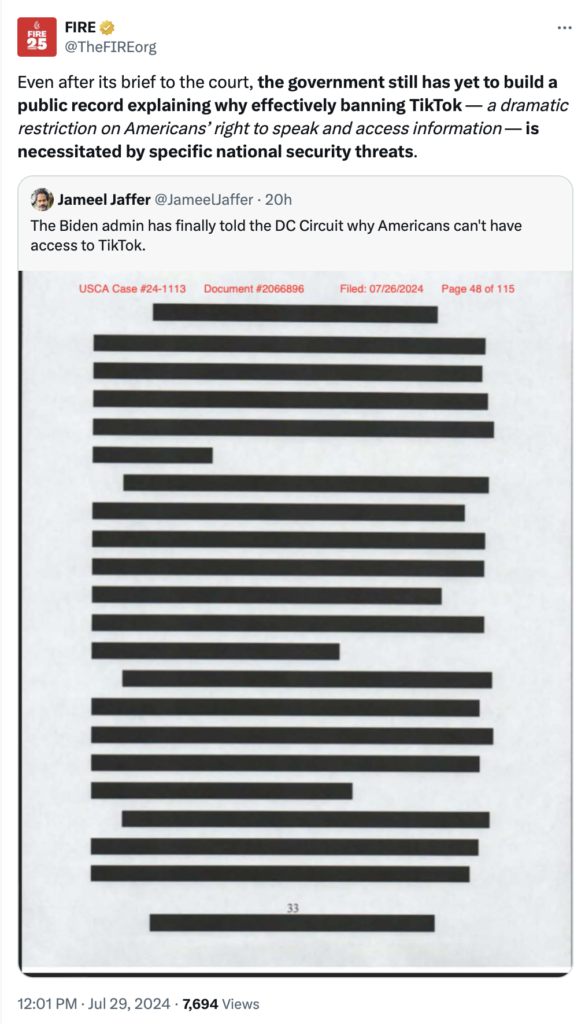Excerpt from FIRE’s recent Amicus Brief:
Never before has Congress taken the extraordinary step of effectively banning a communications platform, let alone one used by half the country. But this spring, Congress did exactly that when it passed the Protecting Americans from Foreign Adversary Controlled Applications Act. The law not only threatens TikTok’s U.S. operation but also exposes other online platforms to burdensome restrictions, including potential bans, if they have even tenuous connections to certain foreign countries.
TikTok and its users quickly filed lawsuits in the U.S. Court of Appeals for the D.C. Circuit, which the act gives exclusive jurisdiction for challenges to the law. FIRE, joined by the Institute for Justice and the Reason Foundation, filed an amici curiae — “friend of the court” — brief supporting the plaintiffs. We argued the law violates the First Amendment in two ways.
First, it explicitly targets a specific communications platform — and the users who speak and access content on it — for the purpose of silencing opinions and ideas that lawmakers oppose. Such attempts to suppress disfavored views strike at the heart of the First Amendment.
Second, to the extent the law is motivated by national security concerns, Congress has failed to build a public record explaining why such a dramatic restriction of Americans’ right to speak and access information is necessary to address those concerns. (However, the court will not consider the brief for procedural reasons explained in the note following this article.)
Recent development:


